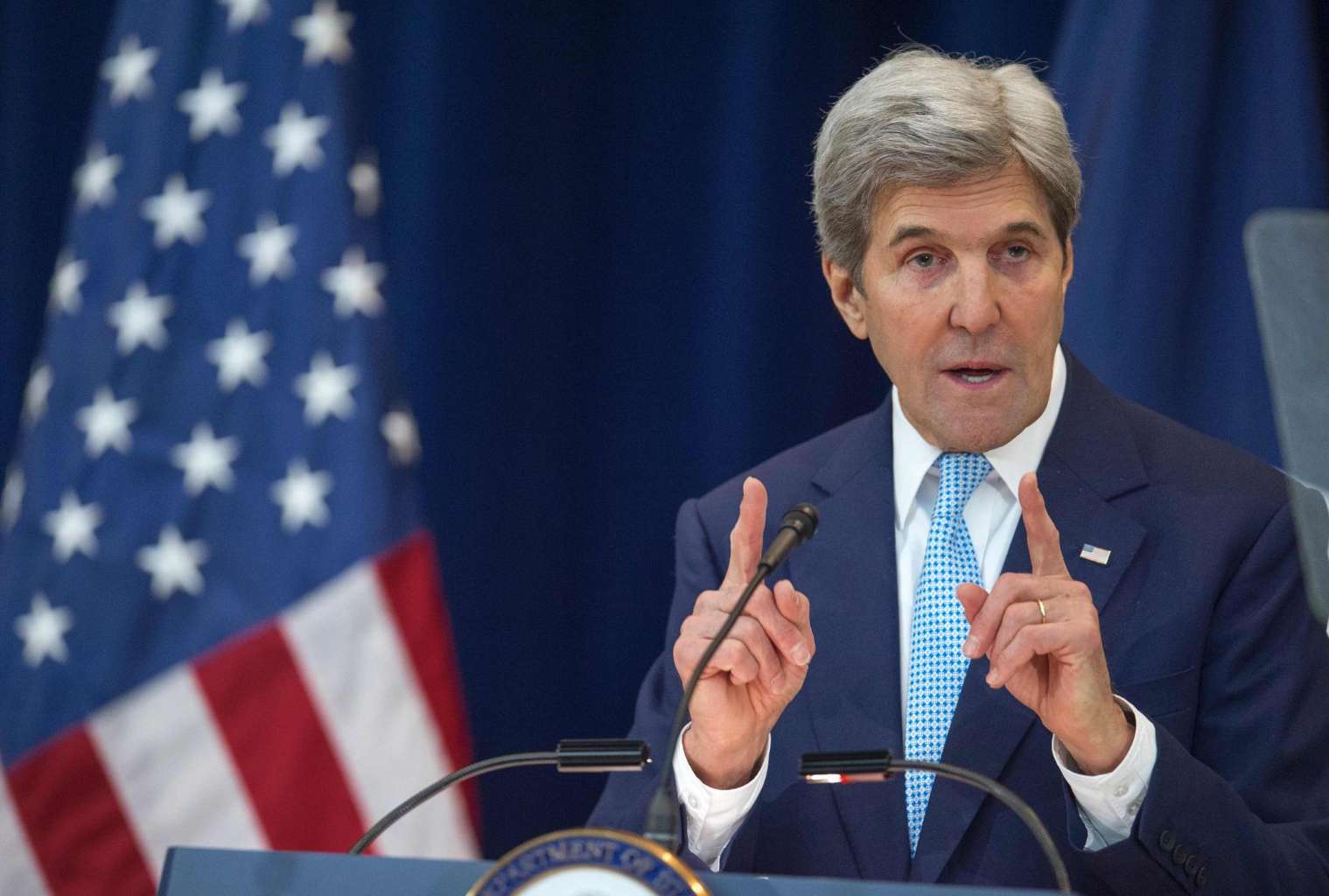The Israel-Palestine conflict: What to know about the Israeli settlements and the two-state solution
Sign up now: Get ST's newsletters delivered to your inbox

US Secretary of State John Kerry lays out his vision for peace between Israel and the Palestinians on Dec 28, 2016, in the Dean Acheson Auditorium at the Department of State in Washington, DC.
PHOTO: AFP
US Secretary of State John Kerry warned on Wednesday (Dec 29) that Israel's settlement building in the West Bank threatens both hope for peace with the Palestinians and the country's own future as a democracy.
Mr Kerry made the comments in a major speech setting out his vision of a solution to the long-simmering conflict. He also said Israel "will never have true peace" with the Arab world if it does not reach an accord based on Israelis and Palestinians living in their own states.
His remarks came days after the United States refused to block the passage of an anti-settlement resolution in the United Nations Security Council.
Mr Kerry's remarks drew a swift response from Israeli Prime Minister Benjamin Netanyahu, who accused him of bias.
Here are some things to know about the Israeli settlements and the two-state solution.
1. What are the settlements?
Settlements are Israeli villages, towns and even cities built on territory Israel seized during the 1967 Six Day War fought between Israel and its Arab neighbours Egypt, Jordan, and Syria.
About 430,000 Israeli settlers currently live in the West Bank, along with 2.6 million Palestinians.
A further 200,000 Israelis live in East Jerusalem, along with at least 300,000 Palestinians, who want to make East Jerusalem the capital of their future state.
Israel also seized part of the Golan Heights from Syria and the Gaza Strip from Egypt and established settlements in both. It evacuated the Gaza settlements in 2005.
2. What is their legal status?
From the 1970s, Israel established a network of settlements throughout the occupied West Bank.
The Oslo accords of the 1990s divided the territory into Israeli and Palestinian-governed zones meant to lay the ground for a future Palestinian state, but Israel continued to build and expand settlements there.
Palestinian violence has also led to calls from some Israelis to build more settlements in response.
The United Nations and most of the international community see Israeli settlements in the West Bank and in East Jerusalem - which Israel annexed in 1980 - as illegal.
Israel differentiates between those it has approved and those it has not - often called outposts.
3. Who are the settlers?
Many Israeli settlers moved to the West Bank and East Jerusalem in search of affordable housing.
The government encouraged them to move to cities such as Ariel, Maale Adumim and the ultra-Orthodox settlements of Beitar Ilit and Modiin Ilit.
There are also many religious nationalist hardliners who see living in the biblical lands of Judea and Samaria as fulfilling a divine promise.
Hundreds of them live near the Cave of the Patriarchs in Hebron, a holy site for both Jews and Muslims and a focal point of violence between Israelis and Palestinians.
4. How do the Palestinians see settlements?
Palestinians consider Israeli settlements a war crime and a major obstacle to peace.
The Palestinians want Israel to withdraw from all land it occupied in the 1967 Six Day War and to dismantle all Jewish settlements, although they have accepted the principle of minor land swaps equal in size and value.
Israel rules out a full return to pre-1967 borders but has expressed a willingness to pull out of some parts of the West Bank while annexing its largest settlement blocs which are home to the majority of the settlers in the territory.
5. What is the two-state solution?
It is the declared goals of the Israeli and Palestinian leaders as well as that of Washington and the bulk of the international community, as was reflected by the UN vote.
The two-state solution envisions secure and recognised international borders between Israel and a viable and contiguous Palestine - based on the 1967 lines before it seized the West Bank, East Jerusalem and Gaza.
The two sides would also agree to land swaps.
6. What is the impact of the new UN resolution?
By declining to use its veto, the Obama administration enabled the adoption of the first UN resolution since 1979 to condemn Israel over its settlement policy.
But the new UN resolution changes nothing on the ground between Israel and the Palestinians and will probably be all but ignored by the incoming US administration of President-elect Donald Trump, who favours closer ties with Israel.
SOURCES: AGENCE FRANCE-PRESSE, REUTERS, BBC


